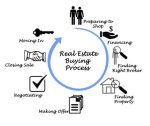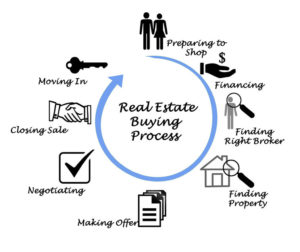2022 South Florida Real Estate Projections

Nationally, expect slower housing price appreciation, easing inflation and rising interest rates in 2022, according to a survey of more than 20 top U.S. economic and housing experts by the National Association of Realtors® (NAR). “Overall, survey participants believe we’ll see the housing market and broader economy normalize next year,” Yun said. “Though forecasted to rise 4%, inflation will decelerate after hefty gains in 2021, while home price increases are also expected to ease with an annual appreciation of less than 6%. Slowing price growth will partly be the consequence of interest rate hikes by the Federal Reserve.”
Fed boosts to interest rates do tend to move rates higher on longer-term loans, such as 30-year mortgages. Yun expects the 30-year fixed mortgage rate to increase to 3.5% as the Fed raises interest rates to control inflation but noted this is lower than the pre-pandemic rate of 4%.
In South Florida Home prices are projected to continue to grow, but slower than the past year. “We don’t expect to see the same price appreciation we had last year, though we don’t expect to see a decline in pricing,” said Eli Beracha, director of the Hollo School of Real Estate at Florida International University. A Realtor.com forecast predicts that South Florida housing prices may rise almost 6% over the next year, while a Zillow forecast predicts that home price appreciation could shoot up by 15%.
A few factors are going to cause slower price growth: more inventory as sellers try to capitalize on the hot market, new developments hitting the market and an increase in mortgage interest rates. Demand from foreign and out-of-state buyers will continue to drive South Florida’s housing market, but experts also expect new inventory to alleviate some of the pressure that has been fueling the pandemic-era housing boom.
Experts say the market will still favor sellers, as demand and limited inventory will keep the balance in their favor. Bidding wars and multiple offers on homes will probably still be a common.
The supply chain issues, and lack of labor will continue to lead to increased construction costs and thus higher prices for buyers.

















 Kim N. Bregman
Kim N. Bregman